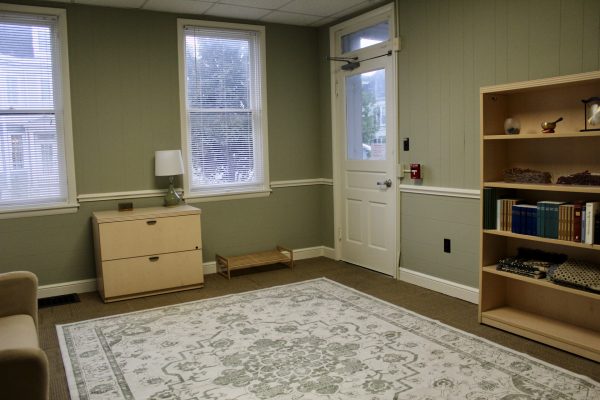Clarke Forum Event Tackles The Sexism of “Like” Filler Words
How do women and female-presenting people speak? Is there a correct way to communicate? The policing of language, especially for women, was the topic of discussion during the Tertulia Clarke Forum event on March 23, which was planned and hosted by Marina Stylianou ‘24 and Donna Bickford, Professor of Women’s Gender & Sexuality studies. The event began with a discussion of two articles that the participants were sent before that examined the way filler words—which includes “like”, “so”, and “um”—are constantly being criticized despite being valid and normal speaking patterns.
The two readings that were required was Amanda Montell’s article “Why Saying ‘Like’ a Lot Is Like, Actually a Good Thing”, which focused on the six technical uses for the word “like”, and the article “Why Filler Words Like ‘Um’ and ‘Ah’ Are Actually Useful” by Allison Shapira, which argued that there were appropriate settings in which filler words were not only permitted, but necessary.
Students discussed these articles and their personal experiences with those, mainly men, who have tried to police their language in the past. Many students spoke about how they have also been forced to monitor their language for these filler words. A surprising trend was that most authority figures who condemn filler words claim to be doing so to help the speaker, though many times that help involves leaving a negative impact on one’s self image and confidence.
Additionally, studies have shown that women are unfairly targeted for their use of filler words. While men and women use the same amount of fillers, the words they use differ. Bickford discussed how men commonly used filler words like “uh” and “um,” while women often used “like” and “sorry,” words that are often associated with the stereotype of a “valley girl accent.”
The discussion then shifted into the practice of women apologizing for their actions, socialized to be over-polite to an extreme. Many students at the event expressed how in emails, especially when addressed to authority figures like professors, they used language that repeatedly apologized for taking up time and space in the form of “sorry for the inconvenience,” and “thank you so much.” Female students also expressed feeling the need to repeatedly thank authority figures many times to an extreme and unnecessary limit. Students theorized on where they learned this practice, and the possible consequences that self-policing invites.
A common theme of this conversation focused on the idea that in order to exist as a woman, one must constantly be aware of how they are perceived—a double standard that impacts the lives of many women today. The expectations of how women are “meant” to be seen oftentimes causes people to condemn their gender. As Stylianou stated, “We are not being punished for how we speak, we are being punished for being women or being perceived as women.”
Judging the way people communicate, especially when it comes from a place of elitism and sexism, should not be ignored. Words matter, and as demonstrated in the Tertulia, at times that manner of speaking may be a defense.







